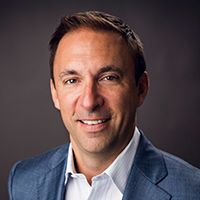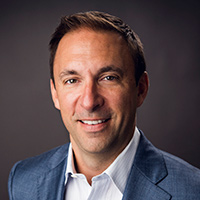5 Places Your Retirement Savings Could End Up (and How to Avoid 4 of Them)
Without careful planning, your hard-earned nest egg could be lost to these common pitfalls.


Profit and prosper with the best of Kiplinger's advice on investing, taxes, retirement, personal finance and much more. Delivered daily. Enter your email in the box and click Sign Me Up.
You are now subscribed
Your newsletter sign-up was successful
Want to add more newsletters?

Delivered daily
Kiplinger Today
Profit and prosper with the best of Kiplinger's advice on investing, taxes, retirement, personal finance and much more delivered daily. Smart money moves start here.

Sent five days a week
Kiplinger A Step Ahead
Get practical help to make better financial decisions in your everyday life, from spending to savings on top deals.

Delivered daily
Kiplinger Closing Bell
Get today's biggest financial and investing headlines delivered to your inbox every day the U.S. stock market is open.

Sent twice a week
Kiplinger Adviser Intel
Financial pros across the country share best practices and fresh tactics to preserve and grow your wealth.

Delivered weekly
Kiplinger Tax Tips
Trim your federal and state tax bills with practical tax-planning and tax-cutting strategies.

Sent twice a week
Kiplinger Retirement Tips
Your twice-a-week guide to planning and enjoying a financially secure and richly rewarding retirement

Sent bimonthly.
Kiplinger Adviser Angle
Insights for advisers, wealth managers and other financial professionals.

Sent twice a week
Kiplinger Investing Weekly
Your twice-a-week roundup of promising stocks, funds, companies and industries you should consider, ones you should avoid, and why.

Sent weekly for six weeks
Kiplinger Invest for Retirement
Your step-by-step six-part series on how to invest for retirement, from devising a successful strategy to exactly which investments to choose.
After more than 25 years as a financial adviser, I’ve learned there are roughly five places your retirement money can take you – and only one of them is where you want it to be!
When we talk about “financial planning,” most people think of it as growing their money while they’re working and then living off those savings in retirement. But there’s much more to it.
Your financial professional should be working with you not just on investment and income strategies, but also tax, health care and estate planning. Your retirement roadmap isn’t complete unless all five of those needs have been addressed. It should take you to and all the way through retirement – and then continue on, taking care of your loved ones when you die.
From just $107.88 $24.99 for Kiplinger Personal Finance
Become a smarter, better informed investor. Subscribe from just $107.88 $24.99, plus get up to 4 Special Issues

Sign up for Kiplinger’s Free Newsletters
Profit and prosper with the best of expert advice on investing, taxes, retirement, personal finance and more - straight to your e-mail.
Profit and prosper with the best of expert advice - straight to your e-mail.
Your financial plan should outlive you.
If you’re working with someone who specializes in investing only, you’re going to miss out on some key components that will protect the nest egg you worked so diligently to build. Unfortunately, mistakes are made all the time that can wipe out hard-earned savings and intended legacies.
What’s likely to happen to the money you’ve worked so hard to save? One of these five things:
1. You can keep your money, and when you die, pass it on to your beneficiaries.
Your money goes where you want it to go – to your family, your church and/or your favorite charities – with as little loss as possible. If you have $1 million, you want your loved ones to receive $1 million net. That’s your goal, and a comprehensive plan built with preservation in mind can help get you there. However, you must be aware of detours ahead.
2. You could lose your life savings in the market.
If you never change course from accumulating money to preserving it, you’re likely headed for trouble. Many people have a portfolio with excessive risk, and they don’t even know it. This can be dangerous when you start using that money for income and you’re no longer contributing to those accounts.
Remember: If you lose half your savings in the stock market, you’ll need a 100% rate of return just to get back to where you were. Pump the brakes. Have an adviser analyze your holdings and match them with your risk tolerance. And while you’re at it, have them look at the fees you’re paying. They might be taking such small bites that you don’t notice, but those fees can eat away at your earnings – and your estate.
3. You could be hit with a lawsuit.
Everyone is vulnerable, but deep pockets attract lawsuits. I have a client, a pharmacist, who barely tapped the bumper of a car that stopped abruptly in front of him. He knew the other driver, she was a customer, and she agreed there wasn’t even a scratch.
But two years later, he received a summons; the woman was suing him for far more money than his car insurance would cover. He lives in an upscale neighborhood and has a nice car and a good business, and she had a lawyer who decided it was worth trying for a settlement.
We work so hard to create wealth, yet most people don’t know how to guard it.Talk to an adviser about various asset-protection strategies, such as increasing your liability insurance with an umbrella policy, or perhaps even creating a trust or a limited liability company (LLC) that would discourage lawsuits. As part of that discussion, also look at how your beneficiaries can protect inherited assets from their own personal and professional legal problems.
4. You could give too much to Uncle Sam.
The government wants its fair share of our money, but often we’re too accommodating. I started my career in the family tax business, and one of the reasons I switched to financial planning is that I saw people paying way too much in taxes. Every time you pay an extra dollar, not only are you losing that dollar, you’re losing what that dollar could have grown to 10, 15 or 20 years down the road for you, your children and grandchildren.
Make sure your tax professional and your financial adviser are using every strategy available to keep your wealth in your possession. Furthermore, protect your beneficiaries in advance. Taking a lump-sum inheritance may push a loved one into a higher tax bracket that could end up costing thousands. I can’t tell you how many people I’ve talked to who’ve said, “You mean he left $500,000, and I got $300,000?”
The easiest person to tax is a dead person, so be sure your spouse and children are protected by estate-planning strategies, perhaps doling out the money in stages or setting up a discretionary trust.
5. You could get sick and need specialized care.
I’ve seen people spend hundreds of thousands of dollars to pay for a room in a nursing home. I’m not saying those places are bad; they provide a service to keep us comfortable. But long-term care is expensive – most people don’t think about how they’re going to pay for it until it is too late.
There are options. You can get long-term care insurance — which should be called estate-preservation insurance! — but it’s costly and not always available depending on your age or where you live. You could spend down all your assets and apply for Medicaid – but there’s a five-year “look-back” period, and if you’re artificially impoverished, you could be found guilty of fraud. You could look at purchasing an insurance policy or annuity that offers accelerated benefits for those who require long-term care. Your adviser can help you determine what is best.
There’s a theme here, of course, and it’s that planning is critical – not only for building and preserving your savings for as long as you live, but to protect the legacy you wish to leave behind.
Too often, people wait until it’s too late, and then wonder why they couldn’t leave – or didn’t receive – as much as they’d hoped.
Kim Franke-Folstad contributed to this article.
Profit and prosper with the best of Kiplinger's advice on investing, taxes, retirement, personal finance and much more. Delivered daily. Enter your email in the box and click Sign Me Up.

Patrick W. Ayers is the founder of Ayers Financial Services. A graduate of Virginia Tech, where he earned a degree in finance, he maintains the designation of Registered Financial Consultant and is a member of the Association of Registered Financial Consultants and the International Association of Financial Planning.
Ayers shares his wisdom as weekly host of the “Financial Sanity” radio show and often serves as a guest speaker on radio and television, and he frequently holds informational seminars for corporations, universities, charities and individuals. He and his wife, Tara, and their three children live in Roanoke, Virginia. His interests include his kids’ sports, listening to music and watching Virginia Tech “Hokie” football.
Securities and advisory services are offered through Madison Avenue Securities, LLC (MAS), member FINRA/SIPC, and a Registered Investment Advisor. MAS and Ayers Financial Services are not affiliated entities.
The opinions of Patrick Ayers and Ayers Financial Services are their own.